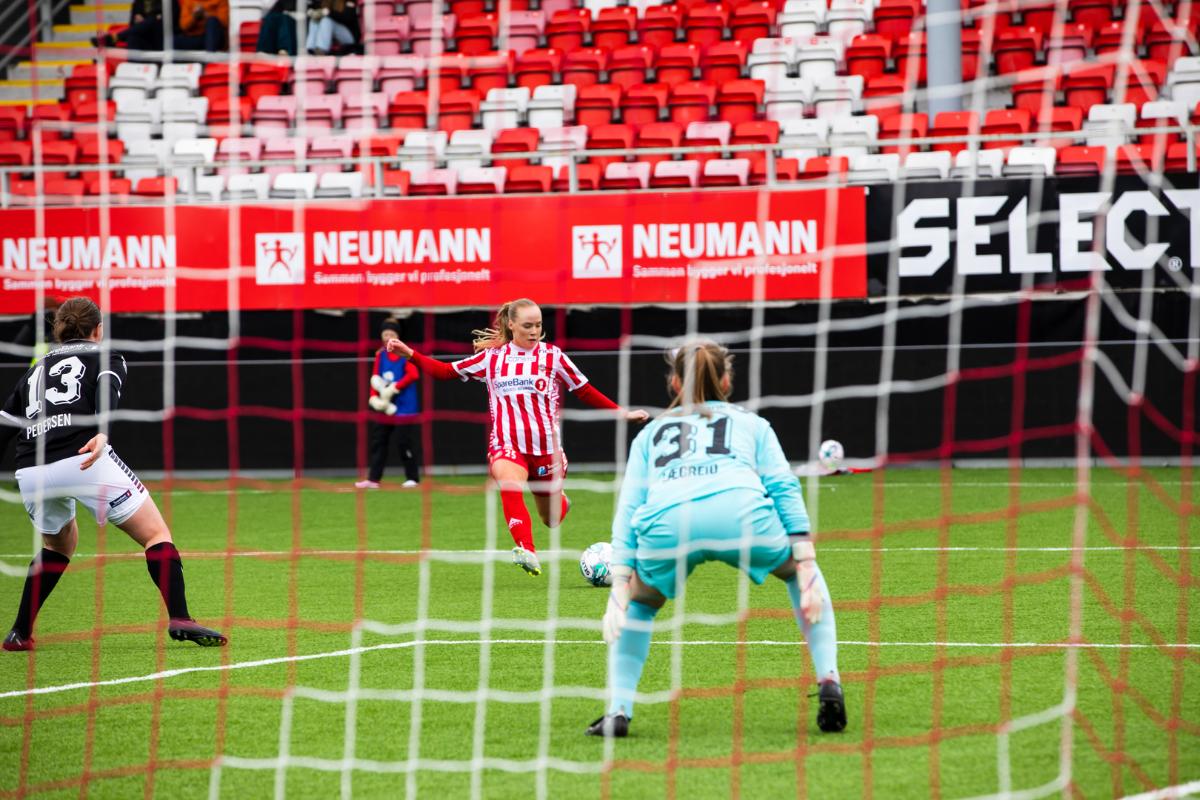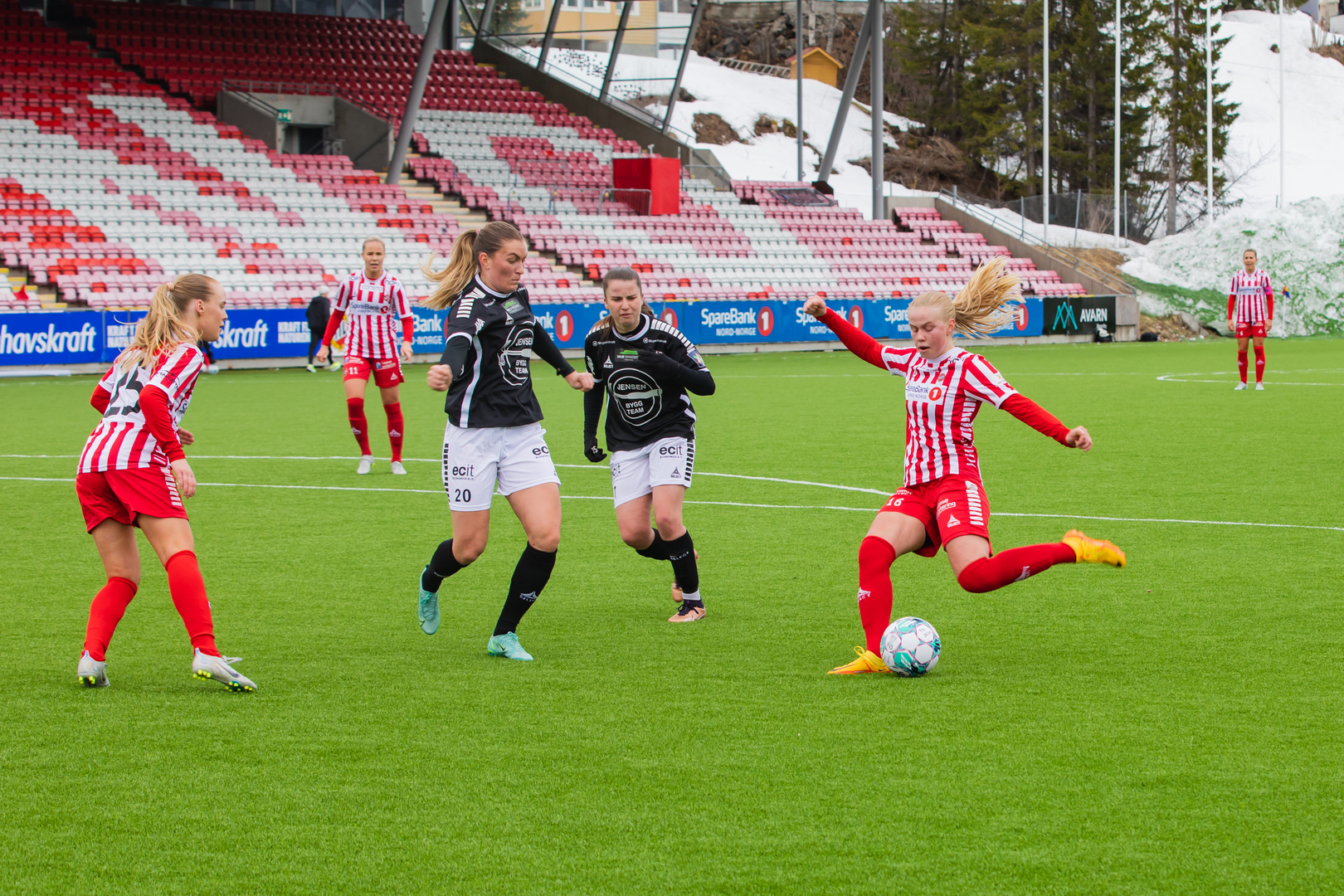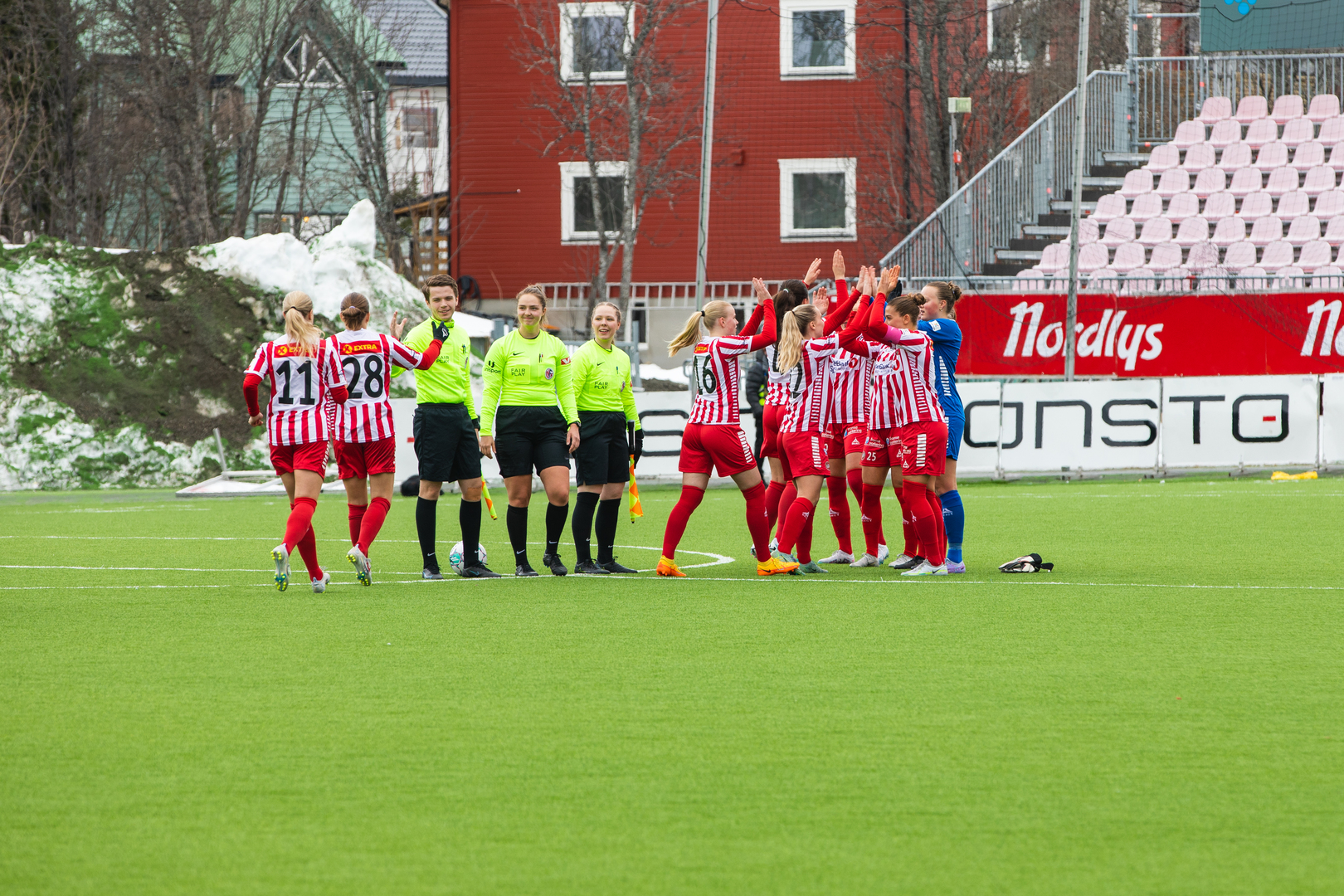Football players perform better when the coach focuses on creating a mastery climate
Are you a football coach and want your players to perform well in matches? Then it can be worthwhile to create a mastery climate where individual development and effort are given the highest priority.

New research from UiT shows how mental factors affect match performance in female football (soccer) players. The researchers have looked at both the training environment and personal characteristics among women in the two top football leagues in Norway.
– The findings show that players who perceive a mastery motivational climate perform better on the football pitch, says Susann Dahl Pettersen.
She is a psychologist and PhD student at the Regional Centre for Child and Youth Mental Health and Child Welfare (RKBU Nord) in the project Female Football Research Centre, at UiT.
She explains that a coach-created mastery climate is about what the players feel the head coach emphasizes in his or her approach. In a mastery climate, the coach focuses on individual development and effort rather than results.
– The opposite of a mastery climate is an ego-oriented climate where the coach is more focused on results, unequal recognition, rivalry between team members and compare the players with each other to a greater extent rather than looking at the development of each individual player. But since we have looked at the players' experience of the team environment, different players can experience the same coach-created environment differently, clarifies Dahl Pettersen.
New method for measuring performance
A total of 156 female football players from 17 teams in the top two leagues in Norway participated in the study.
The psychological factors were measured through multiple questionnaires, while match performance data was obtained from the performance analysis company InStat. InStat gives an individual score based on the players' overall performance in the match.
– What is unique about these new match performance statistics is that they give a position-specific performance score, says Dahl Pettersen.
Personality traits
When it comes to the personality traits of the players, the study shows that women who are so-called extroverts can take advantage of that on the football field.
– Extroverts may be better at communicating on the pitch both verbally and with body language. At the same time, football performance is a complex thing, where both physiological, tactical, and technical characteristics also come into play, says Dahl Pettersen.
When it comes to personality traits, Dahl Pettersen underlines that these are relatively stable in a person, and trainers should not attempt to use any measures to alter these.
To make efforts towards creating a mastery climate is easier.

Important to include everyone
– Coaches can facilitate a mastery climate by making sure that all the players feel important to the team and are seen by the coach, the football researcher says.
She explains that you may have to give extra follow-up to those who are not in a permanent starting lineup. So that they also know that they are just as important to the team and feel just as included even if they haven't played for 90 minutes.
– It is also important that they have their own development goals that are followed up and evaluated, concludes Dahl Pettersen.
Read the scientific article in full here: Beyond physical ability—predicting women's football performance from psychological factors

-
Public Health - master
Varighet: 2 År -
Medisin profesjonsstudium
Varighet: 6 År -
Nordisk - årsstudium
Varighet: 1 År -
Pedagogikk - bachelor
Varighet: 3 År -
Bioingeniørfag - bachelor
Varighet: 3 År -
Informatikk, sivilingeniør - master
Varighet: 5 År -
Likestilling og kjønn - årsstudium
Varighet: 1 År -
Biomedisin - bachelor
Varighet: 3 År -
Kjemi - bachelor
Varighet: 3 År -
Psykologi - bachelor
Varighet: 3 År -
Ergoterapi - bachelor
Varighet: 3 År -
Fysioterapi - bachelor
Varighet: 3 År -
Radiografi - bachelor
Varighet: 3 År -
Samfunnssikkerhet - master
Varighet: 2 År -
Farmasi - bachelor
Varighet: 3 År -
Farmasi - master
Varighet: 2 År -
Psykologi - årsstudium
Varighet: 1 År -
Odontologi - master
Varighet: 5 År -
Tannpleie - bachelor
Varighet: 3 År -
Sykepleie - master
Varighet: 2 År -
Barnevern - bachelor
Varighet: 3 År -
Arctic Nature Guide - one year programme
Varighet: 1 År -
Sosialt arbeid - bachelor
Varighet: 3 År -
Arktisk friluftsliv og naturguiding - bachelor
Varighet: 3 År -
Arktisk friluftsliv - årsstudium
Varighet: 1 År -
Idrettsvitenskap - master
Varighet: 2 År -
Sosialt arbeid - master
Varighet: 2 År -
Vernepleie - bachelor
Varighet: 3 År -
Barnevern - bachelor
Varighet: 3 År -
Vernepleie - bachelor (deltid)
Varighet: 4 År -
Ernæring - bachelor
Varighet: 3 År -
Videreutdanning i krisehåndtering og traumebehandling
Varighet: 1 År -
Videreutdanning om vold i nære relasjoner
Varighet: 1 År -
Videreutdanning i rus og psykisk helse
Varighet: 1 År -
Paramedisin - bachelor
Varighet: 3 År -
Nordisk språk og litteratur - bachelor
Varighet: 3 År -
Fysioterapi - master
Varighet: 3 År -
Aldring og geriatrisk helsearbeid - master (deltid)
Varighet: 3 År -
Helsefaglig utviklingsarbeid - master
Varighet: 3 År -
Psykisk helsearbeid - master
Varighet: 3 År -
Helsesykepleie - master
Varighet: 3 År -
Jordmorfag - master
Varighet: 2 År -
Klinisk ernæring - master
Varighet: 2 År -
Velferdsendring - erfaringsbasert master
Varighet: 4 År -
Ph.d.-utdanning i helsevitenskap
Varighet: 3 År -
PhD Programme in Health Sciences
Varighet: 3 År -
Sykepleie - bachelor
Varighet: 3 År -
Psykologi profesjonsstudium
Varighet: 6 År -
Sykepleie - bachelor (deltid)
Varighet: 4 År -
Samisk sykepleie - bachelor (deltid)
Varighet: 4 År


